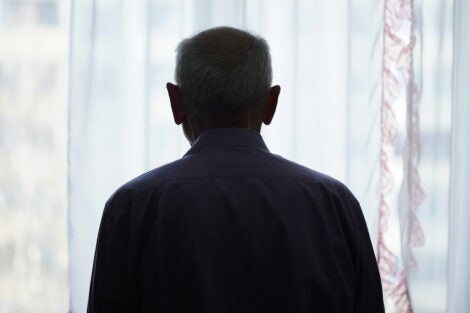February 6, 2024 – Medicare patients who were at the highest risk for severe COVID-19—such as Black patients, patients older than 90, and patients living in nursing homes—received antiviral treatments less often than those who had the least risk, according to a new study.
Harvard T.H. Chan School of Public Health co-authors of the study, published January 26 in JAMA Health Forum, included senior author Michael Barnett, associate professor of health policy and management; Stephen Kissler, formerly a postdoctoral research fellow in the Center for Communicable Disease Dynamics and currently a computer science professor at the University of Colorado Boulder; Ben Sommers, Huntley Quelch Professor of Health Care Economics; and Yonatan Grad, professor of immunology and infectious diseases.
Researchers looked at data from a cross-section of patients enrolled in Medicare in 2022 across the U.S. They expected that people at the highest risk “should be getting treated anywhere from five to 10 times the rate of those with lower risk factors,” Barnett said in a February 5 Fortune article. “But our findings showed the opposite.”
Barnett told Fortune that he and his colleagues were surprised by the results. “We have a free [for Medicare and Medicaid recipients], safe, outpatient treatment for COVID-19 [such as nirmatrelvir, or Paxlovid] that is very effective for people at risk for severe COVID-19 infection, and it’s substantially underused in the U.S.,” he said.
If the high-risk patients in the study had been treated with Paxlovid, 16% of the deaths in the study would have been prevented, the researchers found.
Barnett recommended more education—both for older people with chronic conditions who may not be aware of available COVID treatments, and for doctors who may be hesitant to prescribe the medications because they’re leery about potential interactions with other drugs. Barnett said that, for the most part, drug interactions can be managed.
Read the Fortune article: Medicare beneficiaries at high risk for severe COVID-19 received less treatment. A new study examines why.
Read the study: Clinical Risk and Outpatient Therapy Utilization for COVID-19 in the Medicare Population
Photo: iStock/Yaraslau Saulevich
